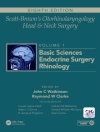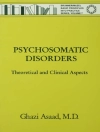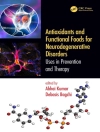In a specialized field such as neurosurgery, highly specific knowledge is required. Training programs in the EU vary, making it difficult to standardize medical training. This manual forms the basis for a European consensus in neurosurgery. It is written for residents, students and physicians with a special interest in neurosurgery. Diagnostic and therapeutic procedures are detailed according to localization (cranial, spinal, peripheral nerves) with special consideration given to congenital defects and pediatric neurosurgical disorders, functional and stereotactic neurosurgery, as well as critical neurosurgical care. Each chapter contains the basics of anatomy and physiology. The book is well-organized and clearly structured according to each entity and its neurosurgical treatment options. A better understanding of specific neurosurgical problems will help practicing neurosurgeons provide better medical care for their patients, and will also provide the neurosurgery resident with a reliable European standard for step-by-step management of neurosurgical problems, which will prove useful when preparing for the board examination.
Table of Content
to Neurosurgery.- Training and Education.- Training in Neurosurgery.- Basic Training in Technical Skills: Introduction to Learning ‘Surgical Skills’ in a Constructive Way.- The Neurocranium.- Basics.- Brain Tumors.- Vascular Diseases.- Infectious Disease.- Trauma.- Developmental and Acquired Anomalies.- Movement Rehabilitation for Trauma and Vascular Patients: Traumatic Brain Injury and Stroke.- The Spine and Spinal Cord.- Basics.- Spinal Tumours.- Degenerative Disease.- Spinal Vascular Diseases.- Infectious Disease of the Spine.- Spinal Trauma.- Syringomyelia.- Treatment and Rehabilitation of Patients with Spinal Cord Lesions.- Peripheral Nerve Surgery.- Basics: Aetiology, Pathophysiology, General Symptomatology and Diagnosis of Peripheral Nerve Injuries.- Clinical Neurophysiology.- Therapy of Peripheral Nerve Lesions.- Nerve Compression Syndromes in the Extremities.- Peripheral Nerve Tumours.- Autonomic Nervous System.- Cranial Nerves.- Cranial Nerve Deficits.- Cranial Nerve Compression Syndromes.- Conclusion.- Congenital Defects and Childhood Disorders.- Cranial and Spinal Dysraphisms.- Craniosynostosis.- Neurocutaneous Syndromes.- Hydrocephalus.- Neuromodulation: Functional and Stereotactic Neurosurgery.- Epilepsy.- Pain.- Functional Stereotactic Neurosurgery for Movement Disorders: Deep Brain Stimulation.- Functional Applications of Radiosurgery.- Image-Guided Neurosurgery.- Spasticity and Muscles: Basics for Understanding the Different Treatment Modalities.- Critical Neurosurgical Care.- Consciousness Impairment.- Intracranial Hypertension.- Water and Electrolyte Regulation.- Temperature Regulation.- Respiration.- Nutrition.- Multiresistant Infections in Neurointensive Care Patients.- Specific Aspects of Critical Care for Children.












